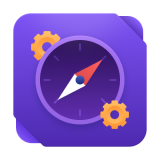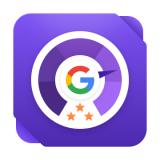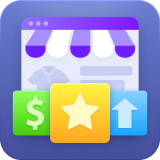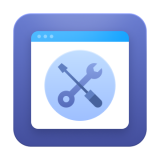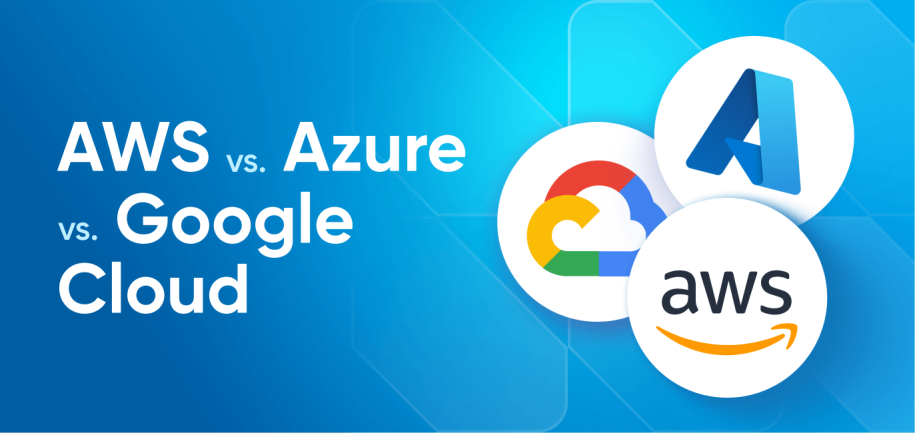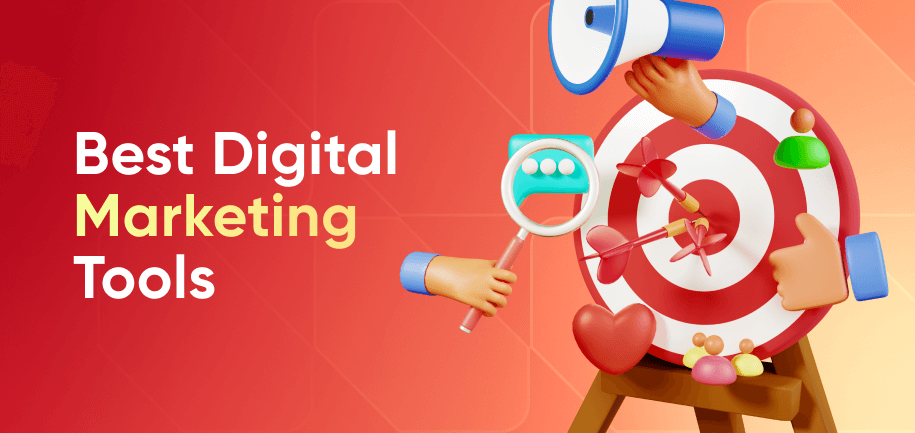The global AI market is projected to reach a staggering $1.81 trillion in value by 2030, with a significant 35% of companies already actively using AI in their operations today.
This rapid growth forces a critical decision: the choice of a cloud provider. A poor choice can lead to major cost overruns, technical roadblocks, and an inability to scale AI models. The wrong infrastructure can stall a company's competitive edge and AI initiatives before they even launch.
This article provides a clear framework to cut through the "Big Three" hype. We directly compare AWS, Azure, and Google Cloud on their AI services, computational power, and cost structure, so you can identify the specific provider that aligns with your unique business goals for 2025 and beyond.
Overview of AWS, Azure, and Google Cloud
Before any detailed feature comparison, you need to understand the core identity and market position of each contender in the cloud amazon vs google vs microsoft landscape.
Amazon Web Services (AWS)
AWS launched as the pioneer in 2006 and remains the market leader. It is the most mature and widely adopted cloud platform, with an unparalleled breadth and depth of services. These range from core computing and storage to cutting-edge AI and machine learning tools.
Top Clients: Netflix, Airbnb, Unilever, NASA, ESPN
Microsoft Azure
Azure has firmly established itself as the leading enterprise cloud provider. Its strongest selling point is seamless integration with the ubiquitous Microsoft software ecosystem, including Windows Server, Active Directory, and the Office 365 suite. For organizations heavily invested in Microsoft technologies, Azure offers a natural and streamlined path to the cloud, with a strong focus on hybrid cloud deployments.
Top Clients: Boeing, GE Healthcare, Walgreens, HSBC, Samsung
Google Cloud Platform (GCP)
Google Cloud is a relative latecomer compared to AWS and Azure, but it carved out a powerful niche. The platform leverages Google's legendary technical infrastructure and innovation. GCP often leads as the technical frontrunner in data analytics, machine learning, and Kubernetes-based container orchestration. Its high-performance network, strong commitment to open-source, and flexible pricing models define its reputation.
Top Clients: Spotify, PayPal, Twitter, Bloomberg, Target
Cloud Platforms Comparison: AWS vs. Microsoft Azure vs. Google Cloud
This AWS vs. Google Cloud vs. Azure comparison analyzes their core services side-by-side.
| Feature | AWS | Azure | Google Cloud (GCP) |
| Compute | EC2 (Elastic Compute Cloud) | Virtual Machines (VMs) | Compute Engine |
| Storage | S3 (Simple Storage Service) | Blob Storage | Cloud Storage |
| Networking | VPC (Virtual Private Cloud) | VNet (Virtual Network) | VPC (Virtual Private Cloud) |
| Databases | RDS, Aurora, DynamoDB | SQL Database, Cosmos DB | Cloud SQL, Spanner, Firestore |
| Pricing Model | Pay-as-you-go, Savings Plans | Pay-as-you-go, Reserved Instances | Sustained Use Discounts, Committed Use Discounts |
| Cost Tool | AWS Cost Explorer | Azure Cost Management | GCP Cloud Billing Reports |
Compute Services
Computing is the fundamental building block of any cloud application.
AWS EC2 – The most established service, offering an immense variety of instance types optimized for every conceivable workload. Its flexibility is unmatched, but the sheer number of options can be complex for beginners.
Azure Virtual Machines – Provides deep integration with the Microsoft stack, making it ideal for running Windows-based applications. Its hybrid benefit feature, which allows you to use on-premises Windows Server licenses, can lead to significant cost savings.
GCP Compute Engine – Praised for its live migration of virtual machines (preventing downtime during host maintenance) and per-second billing, which can be more cost-effective than the per-minute models of AWS and Azure.
Storage Services
Reliable and scalable storage is non-negotiable.
AWS S3 – The industry standard for object storage, known for its extreme durability (99.999999999%) and a rich set of features like versioning and lifecycle management.
Azure Blob Storage – A highly competitive object storage solution that integrates seamlessly with other Azure services like Data Lake for analytics. It offers cool and archive tiers for cost-effective data storage.
GCP Cloud Storage – Offers a unified and simple approach with multi-regional, regional, and archive storage classes. It is renowned for its excellent performance and integration with Google's data analytics services.
Networking Services
A cloud provider's network is the circulatory system that connects all your services.
AWS VPC – The most mature and feature-rich networking stack, offering granular control over network configuration, advanced security features like Security Groups and NACLs, and dedicated connection services like AWS Direct Connect.
Azure VNet – Provides deep integration with Azure's security and hybrid services, such as Azure ExpressRoute for private connections. Its network security groups and application security groups offer flexible traffic management.
GCP VPC – Leverages Google's premium global fiber-optic network, providing consistently low-latency and high-throughput connections between its data centers. Its global VPC model allows for simplified network management across regions.
Database Services
Managed databases remove the operational overhead of database administration.
AWS – Offers the most comprehensive portfolio with Amazon RDS for relational databases, Aurora for high-performance MySQL/PostgreSQL compatibility, and DynamoDB for a fully managed NoSQL experience.
Azure – Azure SQL Database is a flagship service for Microsoft SQL Server workloads. Azure Cosmos DB is a globally distributed, multi-model database that is often highlighted for its low-latency guarantees.
GCP – Cloud SQL offers managed MySQL, PostgreSQL, and SQL Server. Its standout offering is Cloud Spanner - a horizontally scalable, strongly consistent relational database service that is unique in the market.
Pricing Models
Cost comparisons between AWS, Azure, and GCP are complex and highly dependent on specific usage patterns. Each provider offers distinct models for long-term savings.
AWS – Operates on a pay-as-you-go model. Its primary savings come from Savings Plans and Reserved Instances, which require a financial commitment for a significant discount.
Azure – Also uses pay-as-you-go and Reserved Instances. Its key differentiator is the Hybrid Benefit, which offers major savings for organizations with existing Microsoft software licenses.
GCP – Often praised for its flexible and automated discounts. Sustained Use Discounts apply automatically to running instances, while Committed Use Discounts provide savings for predictable workloads without any upfront payment.
Cost Management Tools
All three platforms provide robust native tools for monitoring and controlling cloud spend.
AWS Cost Explorer – Allows you to visualize, understand, and manage your AWS costs and usage over time.
Azure Cost Management + Billing – Provides similar functionality, with deep integration into the Azure portal and Power BI for reporting.
GCP Cloud Billing Reports – Offers detailed reports and budgets, with a user-friendly interface to track spending across projects.
Security and Compliance
Security is a shared responsibility, but the provider must offer a secure foundation.
All three providers offer enterprise-grade security, including:
Physical security of data centers
Network firewalls and encryption
Identity and Access Management (IAM) tools (AWS IAM, Azure Active Directory, GCP IAM)
A wide range of compliance certifications (GDPR, HIPAA, ISO 27001, SOC 1/2/3)
The choice here often comes down to the specific compliance needs of your industry and the familiarity of your team with the provider's specific IAM tools.
Global Reach and Availability
For low-latency and high-availability applications, global footprint is critical.
AWS – Has the most extensive global infrastructure, with the largest number of regions and availability zones.
Azure – Has a rapidly expanding global network, often building data centers in areas where AWS and GCP are not present.
GCP – Leverages Google's private fiber-optic network, which is considered one of the largest and most advanced in the world, resulting in exceptionally fast and reliable data transfer.
Specialized Tools and Innovations
AWS – Leads with the widest array of services, including dominant offerings in serverless (AWS Lambda) and a vast marketplace of pre-configured software.
Azure – Excels in AI and Machine Learning with Azure Cognitive Services and has a dominant position in the Internet of Things (IoT) space with Azure IoT Hub.
GCP – The undisputed leader in Big Data (BigQuery) and AI/ML (TensorFlow, Vertex AI). Its expertise in Kubernetes (it originally created the technology) makes it the preferred platform for cloud-native, containerized applications.
Pros and Cons of AWS, Azure, and Google Cloud
The ideal cloud provider depends heavily on your organization's specific technical needs and existing ecosystem. The following table summarizes the core strengths and weaknesses of each platform to guide your decision.
| Provider | Strengths | Weaknesses |
| AWS | Unmatched service breadth, market maturity, and global scale; the enterprise standard with the largest community and partner ecosystem. | Can be complex to navigate; cost management is challenging without expert oversight; pricing structure is intricate. |
| Azure | Best-in-class hybrid cloud support and seamless integration with Microsoft tools like Windows Server and Office 365; strong enterprise relationships. | Less mature for non-Windows and open-source workloads; the management portal can be less intuitive; support experiences can vary. |
| Google Cloud | Technical leader in data analytics, AI/ML, and Kubernetes; simple, flexible pricing with automated discounts; superior global network performance. | Smaller market share and enterprise community; fewer features for legacy applications; less comprehensive support for traditional enterprise systems. |
Based on the comparison, AWS offers the broadest and most mature platform, ideal for enterprises needing proven reliability, though its complexity can be daunting. Azure excels with seamless Microsoft integration and hybrid cloud support, making it a top choice for Windows-centric organizations. Google Cloud leads in AI and data analytics with flexible pricing, but has a smaller enterprise footprint. Your choice should align with your priorities: enterprise breadth, Microsoft synergy, or cutting-edge innovation.
When to Choose AWS, Azure, or Google Cloud: Strategic Fit
The most effective way to navigate the AWS vs. Azure vs. Google Cloud decision is to align each provider's core strength with your primary business objective.
1. Choose AWS for Unmatched Breadth and Scale
Select AWS if your priority is a proven, enterprise-grade platform capable of supporting a vast range of complex and global workloads. It is the default for large enterprises and startups that need the assurance of the largest service catalog and community.
2. Choose Azure for Microsoft Ecosystem Synergy
Azure is the logical decision for organizations deeply invested in Microsoft technologies like Windows Server, SQL Server, and Active Directory. Its superior hybrid cloud capabilities make it ideal for enterprises with a significant on-premises footprint.
3. Choose Google Cloud for Data and Technical Leadership
Opt for Google Cloud if your core business depends on Big Data, advanced analytics, or machine learning. It is the premier choice for data-driven startups and established companies pursuing cloud-native innovation with Kubernetes and open-source technologies.
AWS vs Azure vs Google Cloud: Which Cloud Provider is Right for You?
There is no single winner in the cloud platform competition. Each provider serves different needs best. AWS leads with extensive services and global scale. Azure excels in Microsoft integration and hybrid environments. Google Cloud dominates in data, AI, and container innovation.
Your choice should match your specific technical requirements and business goals. Many organizations find that a multi-cloud strategy, using the best platform for each workload, delivers the most effective long term results.
Frequently Asked Questions
Google Cloud isn't losing, but has a smaller market share due to AWS's head start and Azure's enterprise relationships. However, GCP is a leader in technical fields like AI and data analytics.
There is no single "best" platform. The right choice depends on your organization's specific technical needs, existing IT environment, and budget.
The "Big Three" are Amazon Web Services (AWS), Microsoft Azure, and Google Cloud Platform (GCP), who collectively dominate the public cloud market.
Neither is universally better. Azure excels for Microsoft-based enterprises needing hybrid cloud solutions, while AWS offers broader services and greater maturity.
AWS has a wider service range and larger market share for general enterprise use. Google Cloud often proves superior for data-heavy, AI-focused workloads with more flexible pricing.
